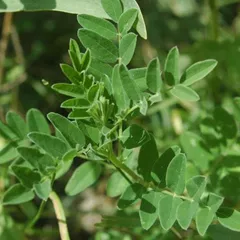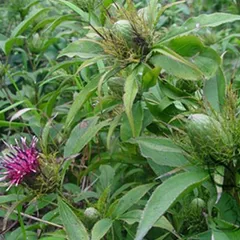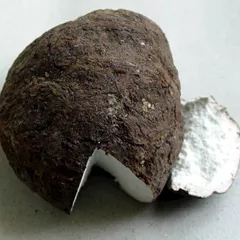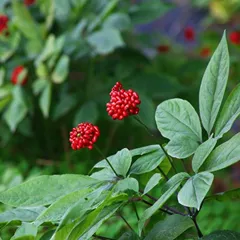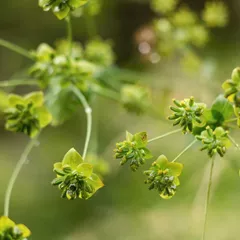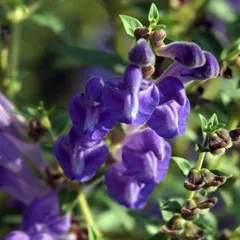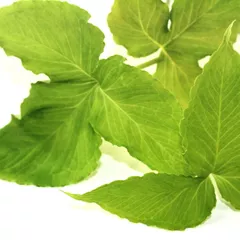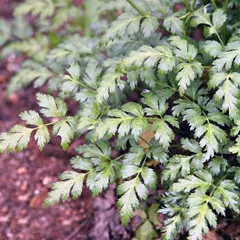Qing Xin Lian Zi Yin
Qing Xin Lian Zi Yin
Chinese: 清心莲子饮
Pinyin: Qīng Xīn Lián Zǐ Yǐn
Other names: Clear the Heart Drink with Lotus Seed
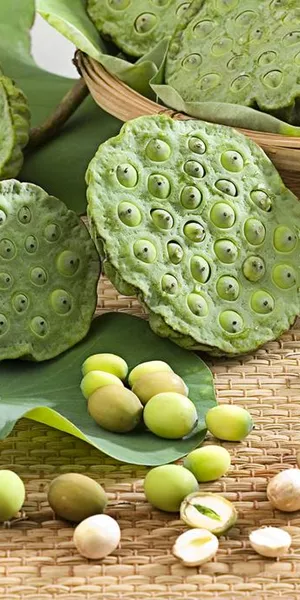
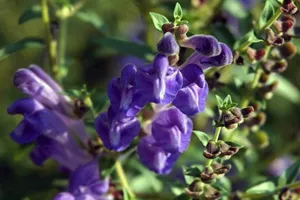
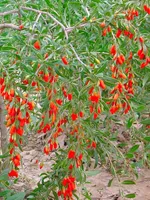
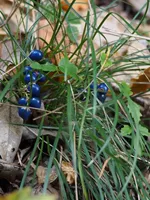




Qing Xin Lian Zi Yin
Qing Xin Lian Zi Yin
Chinese: 清心莲子饮
Pinyin: Qīng Xīn Lián Zǐ Yǐn
Other names: Clear the Heart Drink with Lotus Seed
Number of ingredients: 9 herbs
Formula category: Formulas that clear Heat from the Organs
Conditions for which it may be prescribed: ChyluriaMyocarditisChronic nephritis and three other conditions
- Clears the Heart
- Augments the Qi and Yin
- Stops turbid painful urinary dribbling
Source date: 1107 AD
Source book: Formulary of the Pharmacy Service for Benefiting the People in the Taiping Era
The information provided here is not a replacement for a doctor. You shouldn't use it for the purpose of self-diagnosing or self-medicating but rather so you can have a more informed discussion with a professional TCM practitioner.
Qing Xin Lian Zi Yin is a 9-ingredient Chinese Medicine formula with Lotus Seeds (Lian Zi) as a principal ingredient.
Invented in 1107 AD, it belongs to the category of formulas that clear Heat from the Organs. Its main actions are: 1) clears the Heart and 2) augments the Qi and Yin.
In Chinese Medicine health conditions are thought to arise due to "disharmonies" in the body as a system. These disharmonies are called "patterns" and the very purpose of herbal formulas is to fight them in order to restore the body's harmony.
In this case Qing Xin Lian Zi Yin is used by TCM practitioners to fight patterns like Heart Fire blazing or Kidneys And Heart Not Harmonized. From a Western Medicine standpoint, such patterns can give rise to a range of conditions such as chronic nephritis, chronic prostatitis or chyluria for instance.
On this page, after a detailed description of each of the nine ingredients in Qing Xin Lian Zi Yin, we review the patterns and conditions that Qing Xin Lian Zi Yin helps treat.
The nine ingredients in Qing Xin Lian Zi Yin
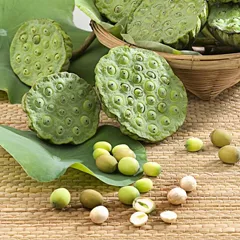
Lian Zi is a king ingredient in Qing Xin Lian Zi Yin. Like the name indicates, it means it has more power than other ingredients in the formula.
1. Lotus Seeds (Lian Zi)
Part used: Dried ripe seed
Nature: Neutral
Meridian affinity: HeartKidneySpleen
Category: Herbs that stabilize and bind
In general Lian Zi's main actions are as follows: "Tonifies the Spleen, stops diarrhea. Strengthens the Kidneys, reinforces Essence. Nourishes the Blood and calms the mind."
In the context of Qing Xin Lian Zi Yin, it is used because it clears Heart Fire, augments Qi and Yin, drains Damp-Heat, and stops leakage.
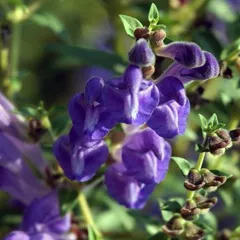
Huang Qin is a deputy ingredient in Qing Xin Lian Zi Yin. This means it helps the king ingredient(s) treat the main pattern or it serves to treat a coexisting pattern.
2. Baikal Skullcap Roots (Huang Qin)
Part used: Dried root
Nature: Cold
Taste(s): Bitter
Meridian affinity: GallbladderHeartLarge intestineLungSmall intestineSpleen
Category: Herbs that clear Heat and dry Dampness
In general Huang Qin's main actions are as follows: "Expels Heat and Dampness. Clears Upper Burner Heat, especially of the Lung. Clears Heat and stops reckless movement of Blood. Clears pathogenic Heat which is upsetting the fetus. Cools the Liver, reducing Liver Yang rising syndrome."
In the context of Qing Xin Lian Zi Yin, it is used because it strengthens the power of the key herb to clear Heat..
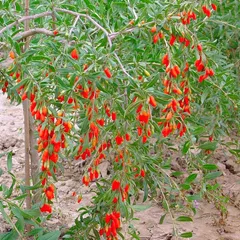
Di Gu Pi is a deputy ingredient in Qing Xin Lian Zi Yin. This means it helps the king ingredient(s) treat the main pattern or it serves to treat a coexisting pattern.
3. Goji Tree Root Bark (Di Gu Pi)
Part used: Dried root bark
Nature: Cold
Taste(s): Sweet
Meridian affinity: KidneyLiverLung
Category: Herbs that cool the Blood
In general Di Gu Pi's main actions are as follows: "Clears Yin Deficient Heat;. Clears Lung Heat and stops cough. Cools the Blood when there is reckless movement of Blood. Drains Fire when Kidney Water is unable to control Fire."
In the context of Qing Xin Lian Zi Yin, it is used because it strengthens the power of the key herb to clear Heat..
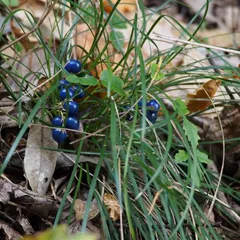
Mai Dong is an assistant ingredient in Qing Xin Lian Zi Yin. This means that it either serves to reinforces the effect of other ingredients or it moderates their toxicity.
4. Dwarf Lilyturf Roots (Mai Dong)
Part used: Dried root tuber
Nature: Cool
Meridian affinity: HeartLungStomach
Category: Tonic herbs for Yin Deficiency
In general Mai Dong's main actions are as follows: "Replenishes Yin Essence and promotes secretions. Lubricates and nourishes the Stomach. Soothes the Lung. Nourishes the Heart."
In the context of Qing Xin Lian Zi Yin, it is used because it clears the Heat and tranquillizes the Heart by nourishing the Yin.
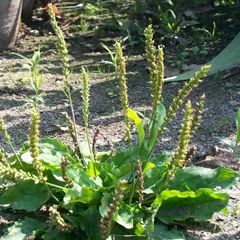
Che Qian Zi is an assistant ingredient in Qing Xin Lian Zi Yin. This means that it either serves to reinforces the effect of other ingredients or it moderates their toxicity.
5. Plantain Seeds (Che Qian Zi)
Part used: Dried ripe seeds
Nature: Cool
Taste(s): Sweet
Meridian affinity: KidneyLiverLungSmall intestine
Category: Herbs that drain Dampness
In general Che Qian Zi's main actions are as follows: "Encourages urination and clears Heat. Stops diarrhea by expelling water through urination. Brightens the eyes, used in combination either for Deficiency or Heat. Reduces inflammation of infections. Arrests cough and expectorates Phlegm."
In the context of Qing Xin Lian Zi Yin, it is used because it promotes urination and separates Heat from Dampness.
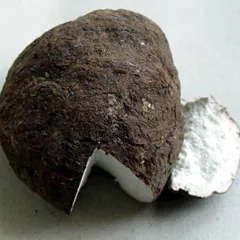
Fu Ling is an assistant ingredient in Qing Xin Lian Zi Yin. This means that it either serves to reinforces the effect of other ingredients or it moderates their toxicity.
6. Poria-Cocos Mushrooms (Fu Ling)
Part used: Dried sclerotium
Nature: Neutral
Taste(s): Sweet
Meridian affinity: HeartKidneyLungSpleen
Category: Herbs that drain Dampness
In general Fu Ling's main actions are as follows: "Encourages urination and drains Dampness. Tonic to the Spleen/Stomach. Assists the Heart and calms the Spirit."
In the context of Qing Xin Lian Zi Yin, it is used because it promotes urination and separates Heat from Dampness.
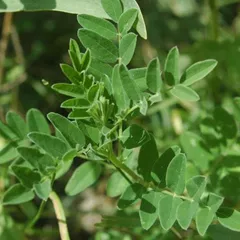
Huang Qi is an assistant ingredient in Qing Xin Lian Zi Yin. This means that it either serves to reinforces the effect of other ingredients or it moderates their toxicity.
7. Milkvetch Roots (Huang Qi)
In general Huang Qi's main actions are as follows: "Tonifies the Wei Qi and stops perspiration. Tonifies the Spleen Qi and the Yang Qi of the Earth Element. Tonifies the Qi and Blood. Expels pus and assists in the healing of wounds. Helps to regulate water metabolism in the body and reduce edema."
In the context of Qing Xin Lian Zi Yin, it is used because it augments the Qi and strengthens the body's transformative potential.
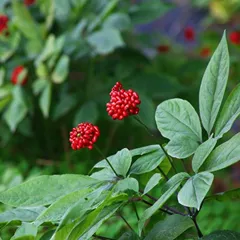
Ren Shen is an assistant ingredient in Qing Xin Lian Zi Yin. This means that it either serves to reinforces the effect of other ingredients or it moderates their toxicity.
8. Ginseng (Ren Shen)
Part used: Dried root
Nature: Warm
Meridian affinity: HeartLungSpleen
Category: Tonic herbs for Qi Deficiency
In general Ren Shen's main actions are as follows: "Very strongly tonifies the Qi. Tonifies the Lungs and Spleen. Assists the body in the secretion of Fluids and stops thirst. Strengthens the Heart and calms the Shen (mind/spirit)."
In the context of Qing Xin Lian Zi Yin, it is used because it augments the Qi and strengthens the body's transformative potential.
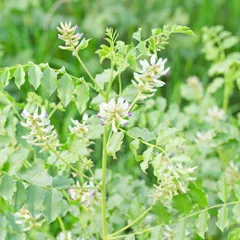
Gan Cao is an envoy ingredient in Qing Xin Lian Zi Yin. This means that it directs the formula towards certain area of the body and/or harmonizes the actions of other ingredients.
9. Liquorice (Gan Cao)
Part used: Dried root and rhizome
Nature: Neutral
Taste(s): Sweet
Meridian affinity: HeartLungSpleenStomach
Category: Tonic herbs for Qi Deficiency
In general Gan Cao's main actions are as follows: "Tonifies the Basal Qi and nourishes the Spleen Qi. Clears Heat and dispels toxicity. Moistens the Lungsexpel phlegm and stop coughing. Relieves spasms and alleviates pain. Harmonizes and moderates the effects of other herbs."
In the context of Qing Xin Lian Zi Yin, it is used because it harmonizes the many different actions of the formula.
Conditions and patterns for which Qing Xin Lian Zi Yin may be prescribed
It's important to remember that herbal formulas are meant to treat patterns, not "diseases" as understood in Western Medicine. According to Chinese Medicine patterns, which are disruptions to the body as a system, are the underlying root cause for diseases and conditions.
As such Qing Xin Lian Zi Yin is used by TCM practitioners to treat two different patterns which we describe below.
But before we delve into these patterns here is an overview of the Western conditions they're commonly associated with:
Chronic nephritis Chronic prostatitis Chyluria Myocarditis Nervous exhaustion Dysfunctional uterine bleeding
Again it wouldn't be correct to say "Qing Xin Lian Zi Yin treats chronic nephritis" for instance. Rather, Qing Xin Lian Zi Yin is used to treat patterns that are sometimes the root cause behind chronic nephritis.
Now let's look at the two patterns commonly treated with Qing Xin Lian Zi Yin.

The Heart is a so-called "Zang" Organ. Learn more about the Heart in Chinese Medicine
Heart Fire blazing
Pulse type(s): Overflowing (Hong), Rapid (Shu), Full (Shi), Hasty (Cu)
Symptoms: Thirst Anxiety Insomnia Red face Dark Urine Palpitations Mouth ulcers Bloody urine Tongue ulcers Restlnessness Feeling of heat Dream disturbed sleep Bitter taste in the mouth
Qing Xin Lian Zi Yin is sometimes prescribed by TCM practitioners to treat Heart Fire blazing. This pattern leads to symptoms such as palpitations, thirst, mouth ulcers and tongue ulcers. Patients with Heart Fire blazing typically exhibit overflowing (Hong), rapid (Shu), full (Shi) or hasty (Cu) pulses.
Different from Heart Yin Deficiency which is an Empty-Heat pattern, the Heart Fire blazing here is a Full-Heat one. The typical manifestation of Full-Heat are thirst, red face, feeling of heat, red tongue and Rapid Overflowing or Hasty Pulse.
The Heart opens to the tongue, therefore Heart Fire... read more about Heart Fire blazing

The Heart is a so-called "Zang" Organ. Learn more about the Heart in Chinese Medicine
Kidneys And Heart Not Harmonized
Pulse type(s): Deep (Chen), Rapid (Shu), Empty (Xu), Weak (Ruo), Floating (Fu)
Symptoms: Anxiety Insomnia Tinnitus Dizziness Dry stools Poor memory Palpitations Restlessness Night sweats Five palm heat Lower back pain Diminished hearing Dry throat at night Dream disturbed sleep Scanty and dark urine Feeling of heat in the evening Nocturnal emissions with dreams Thirst with desire to drink in small sips
Qing Xin Lian Zi Yin is sometimes prescribed by TCM practitioners to treat Kidneys And Heart Not Harmonized. This pattern leads to symptoms such as palpitations, restlessness, insomnia and dream disturbed sleep. Patients with Kidneys And Heart Not Harmonized typically exhibit deep (Chen), rapid (Shu), empty (Xu), weak (Ruo) or floating (Fu) pulses.
This disharmony happens when Kidney Yin is Deficient and cannot nourish the Heart Yin, which then also become Deficient.
There is a strong relationship between Kidneys and Heart because Essence (Jing) housed in the Kidneys is the foundation for the Mind housed in the Heart. If Essence is... read more about Kidneys And Heart Not Harmonized
Formulas similar to Qing Xin Lian Zi Yin
Shi Quan Da Bu Tang is 40% similar to Qing Xin Lian Zi Yin
Shen Ling Bai Zhu San is 40% similar to Qing Xin Lian Zi Yin
Si Jun Zi Tang is 33% similar to Qing Xin Lian Zi Yin
Liu Jun Zi Tang is 33% similar to Qing Xin Lian Zi Yin
Xiao Chai Hu Tang is 33% similar to Qing Xin Lian Zi Yin
Ban Xia Xie Xin Tang is 33% similar to Qing Xin Lian Zi Yin

